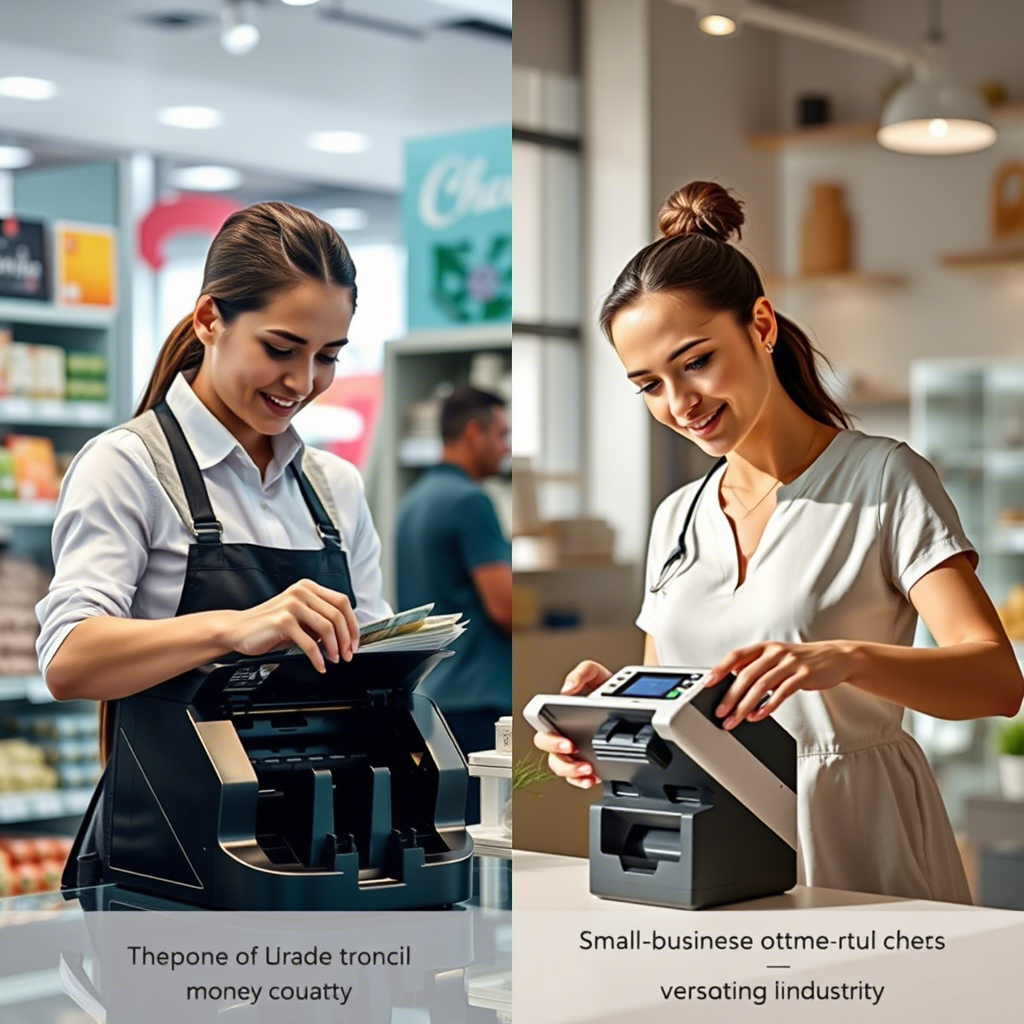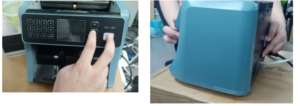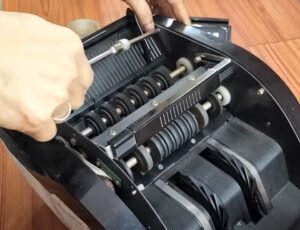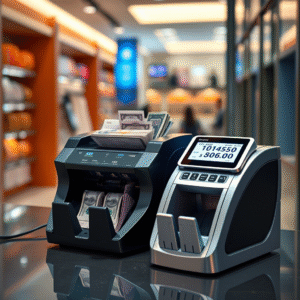Electronic money counting machines aren’t just for banks anymore. Discover how these devices are revolutionizing efficiency and accuracy in retail, hospitality, charities, and even small businesses. Learn about the latest features, cost considerations, and how to choose the right machine for your specific needs.
Okay, so you’re probably thinking, “Electronic money counting machine? Sounds kinda boring.” But trust me, these things are game-changers. They’re not just for big banks anymore. From your local coffee shop to that bustling charity down the street, electronic money counters are quietly revolutionizing how businesses handle cash. Let’s dive into why, and how they can seriously impact your bottom line – no matter what industry you’re in.
Retail Revolution: Speeding Up Transactions and Reducing Errors
Let’s face it: counting cash manually is a pain. It’s slow, prone to errors, and ties up valuable employee time. In the retail world, every second counts, especially during peak hours. Imagine a busy Saturday afternoon at your clothing store. Customers are lined up, impatient to make their purchases. Manually counting each bill and coin? That’s a recipe for disaster.
Electronic money counters eliminate that bottleneck. They can count hundreds of bills per minute with incredible accuracy. This means faster checkout times, happier customers, and less stress for your employees. Plus, they free up your staff to focus on what really matters: providing excellent customer service and boosting sales.
But it’s not just about speed. Accuracy is crucial too. Manual counting is prone to human error, which can lead to discrepancies in your cash register and potential losses. Electronic money counters virtually eliminate these errors, ensuring that your cash handling is precise and reliable. Many machines also offer counterfeit detection, adding an extra layer of security and protecting your business from fraud.
Consider this: a study by the National Retail Federation found that inventory shrinkage (including cash discrepancies) costs retailers billions of dollars each year. Investing in an electronic money counter is a simple way to minimize these losses and improve your overall profitability. And with features like batch counting and denomination sorting, you can streamline your end-of-day reconciliation process and save even more time.
Here’s a quick look at how different types of retail businesses can benefit:
| Retail Type | Fayda | Example |
|---|---|---|
| Grocery Stores | Faster checkout, reduced lines, accurate cash handling | Minimizing wait times for customers buying groceries |
| Clothing Boutiques | Efficient end-of-day reconciliation, fraud detection | Ensuring accurate cash deposits and preventing counterfeit bills |
| Restaurants | Simplified tip distribution, reduced cash handling errors | Streamlining the process of dividing tips among staff |
Beyond the Bank: Charities, Hospitality, and Small Businesses Embrace the Tech
The benefits of electronic money counters extend far beyond the retail sector. Charities, hospitality businesses, and even small businesses are discovering how these machines can streamline their operations and improve their bottom line. For charities, accurate and efficient cash handling is essential for maintaining donor trust and transparency. Electronic money counters can help them process donations quickly and accurately, ensuring that every penny is accounted for.

Think about a local soup kitchen that relies heavily on cash donations. Manually counting those donations is time-consuming and prone to errors. An electronic money counter can automate this process, freeing up staff to focus on serving the community. Plus, it provides a clear audit trail, making it easier to track donations and ensure compliance with regulations.
In the hospitality industry, electronic money counters can streamline tip distribution, manage cash floats, and reduce cash handling errors. Restaurants, bars, and hotels often deal with large amounts of cash, making them vulnerable to theft and discrepancies. Electronic money counters can help them maintain accurate records and prevent losses.
Small businesses, too, can benefit from electronic money counters. Whether you’re running a coffee shop, a bookstore, or a small retail store, these machines can save you time and money. They eliminate the need for manual counting, reduce errors, and free up your staff to focus on other tasks. Plus, they can help you maintain accurate financial records, making it easier to track your cash flow and manage your business.</p




